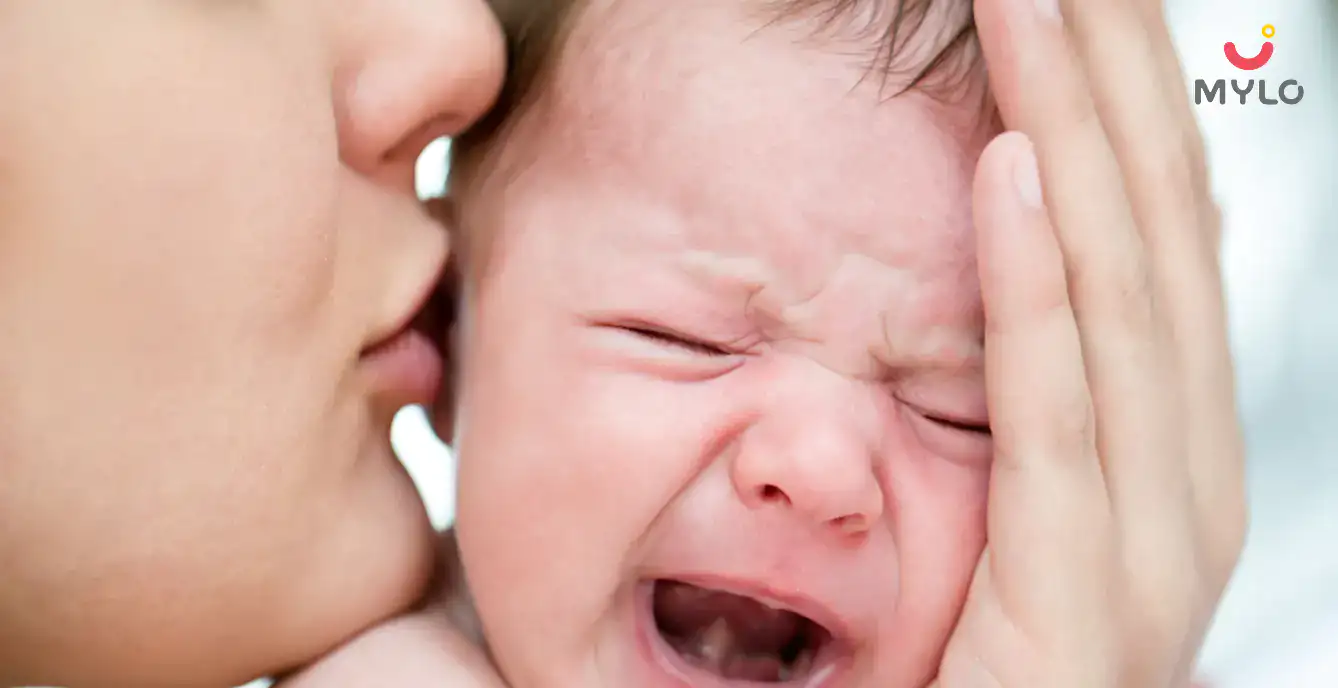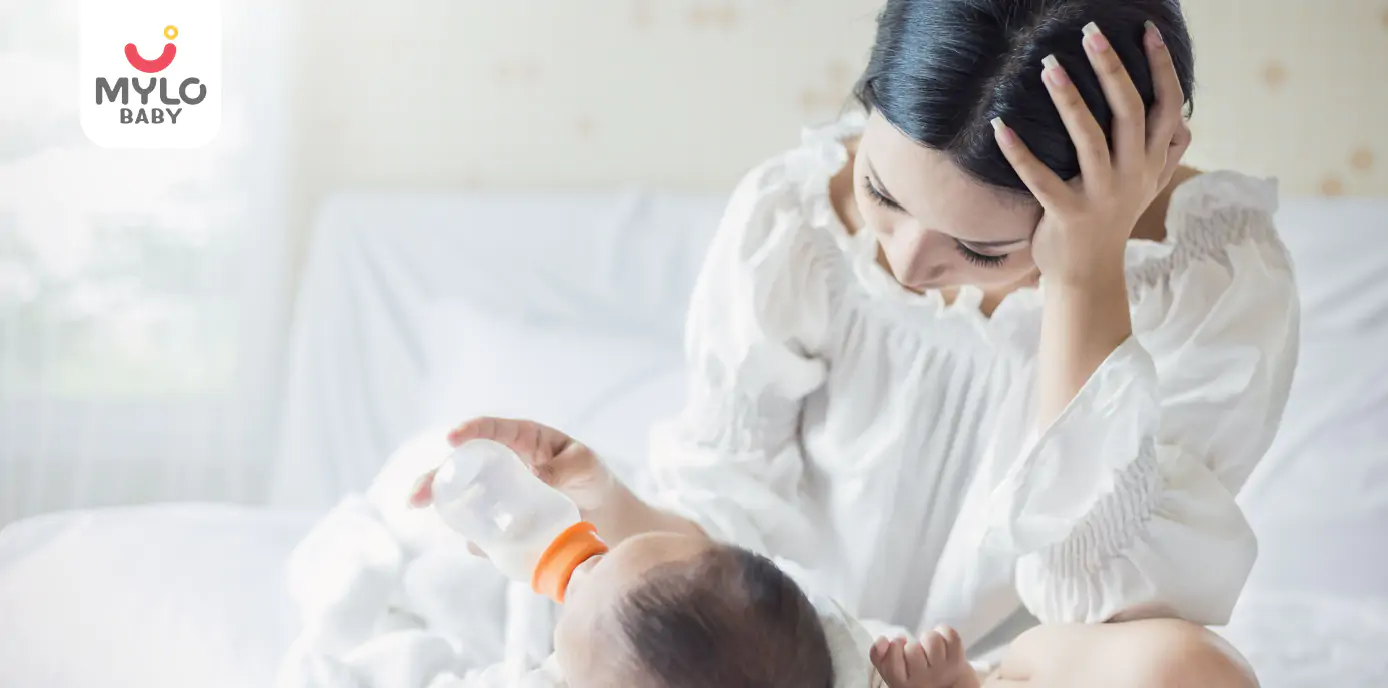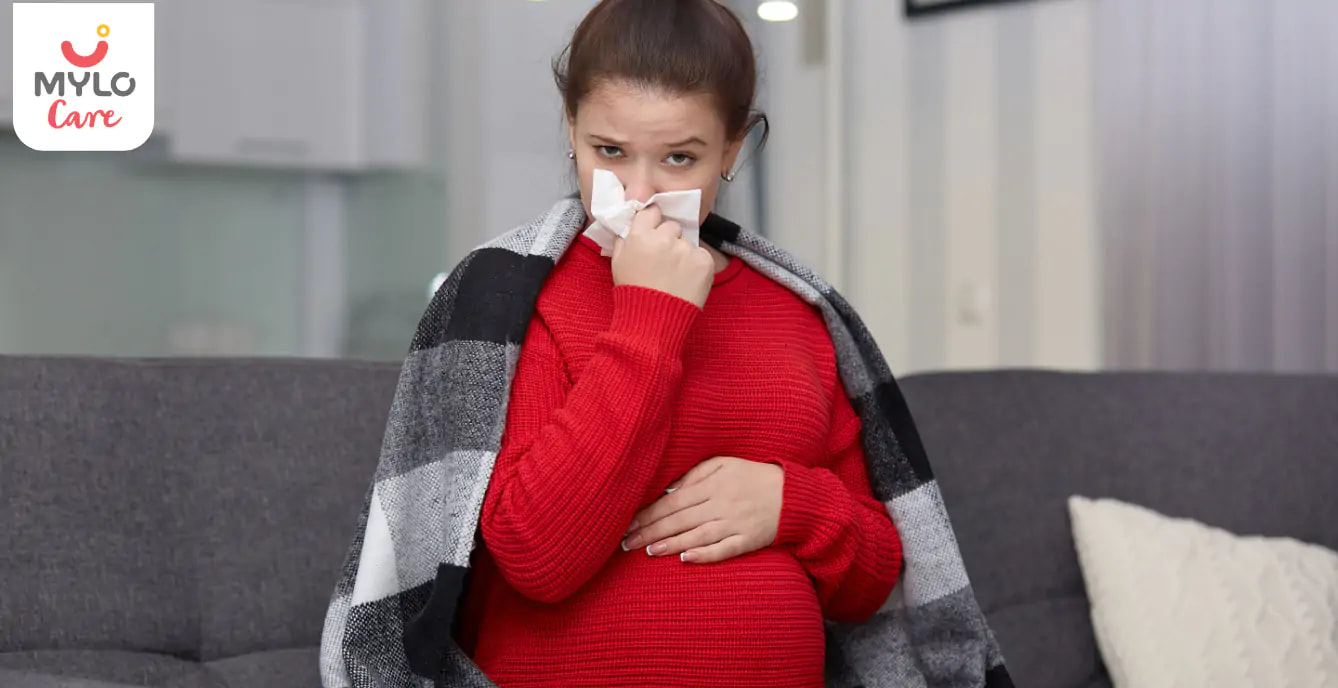Home

Congestion

How to tell if congestion in the nose is due to pregnancy rhinitis or something else and ways to treat it?
In this Article
Congestion
How to tell if congestion in the nose is due to pregnancy rhinitis or something else and ways to treat it?
Updated on 15 June 2022
What is pregnancy rhinitis?
Pregnancy rhinitis is congestion or a stuffy nose during pregnancy. It may feel similar to the nasal congestion you get when you have a cold, but this condition is partly caused by hormonal changes during pregnancy. For example, a higher level of estrogen during pregnancy can cause the lining of the nasal passages to swell, producing more mucus. You also have more blood circulating during pregnancy, which can make the tiny blood vessels inside your nose swell and lead to nasal congestion.
Up to 30 percent of pregnant women have pregnancy rhinitis, and it can start as early as your second month, though it tends to get worse later in pregnancy. The congestion should ease up soon after you give birth and be gone completely within two weeks after delivery.
How to tell if congestion is pregnancy rhinitis or something else?
If congestion or a runny nose are your only symptoms, then you probably have pregnancy rhinitis. If you have a stuffy nose as well as sneezing, coughing, a sore throat, mild aches and pains, swollen glands, or a fever, then it's more likely you have a cold or another infection.
Keep in mind that sinus infections are more common in pregnancy. Call your healthcare provider if you have symptoms of sinusitis, such as fever, headache, green or yellow mucus, facial pain or pressure (which may feel worse when you bend forward), an ache in the upper jaw, or a reduced sense of smell.
On the other hand, if you have a stuffy or runny nose with watery mucus, along with sneezing and itchy eyes, nose, throat, or ears, then you probably have allergies. Allergies during pregnancy are unpredictable: They may improve or get worse, or you may find that you're sensitive to allergens and other irritants that never bothered you before.
Of course, you won't always be able to tell what's causing your congestion, and it's possible that there's more than one cause. For example, you could have allergies and pregnancy rhinitis.
What is the treatment for pregnancy rhinitis?
To ease congestion and other symptoms of pregnancy rhinitis:
• Drink plenty of hydrating fluids.
• Elevate your head with extra pillows when you lie down to rest or sleep.
• Take a warm shower and linger in the steamy bathroom. Steam is soothing and temporarily relieves congestion. You can also soak a washcloth with hot water, hold it up to your face, and breathe.
• Try saline nose drops or saline nasal spray, available over the counter at drugstores. You should be able to blow your nose more easily about five to 10 minutes after squirting a bit into each nostril.
• Use a humidifier or vaporizer in your bedroom at night to add moisture to the air. (Follow the cleaning instructions that come with your humidifier because it can become a breeding ground for bacteria.)
• Get some mild to moderate exercise which sometimes relieves a stuffy nose. (Don't exercise outdoors on days when there's a lot of air pollution because this may irritate your nasal passages and make congestion worse.)
• Avoid potential irritants, such as cigarette smoke, alcohol, paint, and chemical fumes as well as anything else that triggers your symptoms.



Written by
Mittali Khurana
Mittali is a content writer by profession. She is a dynamic writer with 04+ years of experience in content writing for E-commerce, Parenting App & Websites, SEO.
Read MoreGet baby's diet chart, and growth tips

Related Articles
Related Topics
RECENTLY PUBLISHED ARTICLES
our most recent articles

Baby Sleep Management
Are sleeping bags safe for babies?

Baby Sleep Management
Sleep tips for changing time zones with kids

Baby Sleep Management
When can babies sleep with blankets?

Care for Baby
Everyone loves smiling babies. But only mothers understand why they cry- Use your instincts with some useful tips!

Baby Movements
How and when will you start feeling your baby movements?

Brand_Tag_1
Do you want easy transition from breastfeeding to bottle-feeding? Here are some tips to help you do it.
- Wondering how to track your baby's feed? Let us help you!
- These are some alternatives for natural pregnancy
- Prenatal massages to soothe your pregnant partner
- [Funding alert] Mylo raises $17M in Series B round led by W Health Ventures, Endiya Partners and ITC Limited
- Nursery décor: Here are 11 decorating tips and ideas for your newborn baby’s magnificent nursery.
- 5 Fascinating Bedtime Stories for Babies
- My toddler only eats when she is on my lap
- What is the need for electronic fetal heart monitoring during pregnancy, labor, and delivery?
- Constipation in babies: Symptoms and Cure
- Childproofing checklist: Before your baby crawls
- Home essential medical kit for Corona.
- How to have a safe sleep during your pregnancy and what are the best sleeping positions?
- Being a new dad how can I comfort my newborn baby in the middle of the night?
- Numerous reasons for having 1 in million life partner


AWARDS AND RECOGNITION

Mylo wins Forbes D2C Disruptor award

Mylo wins The Economic Times Promising Brands 2022
AS SEEN IN

- Mylo Care: Effective and science-backed personal care and wellness solutions for a joyful you.
- Mylo Baby: Science-backed, gentle and effective personal care & hygiene range for your little one.
- Mylo Community: Trusted and empathetic community of 10mn+ parents and experts.
Product Categories
baby carrier | baby soap | baby wipes | stretch marks cream | baby cream | baby shampoo | baby massage oil | baby hair oil | stretch marks oil | baby body wash | baby powder | baby lotion | diaper rash cream | newborn diapers | teether | baby kajal | baby diapers | cloth diapers |








